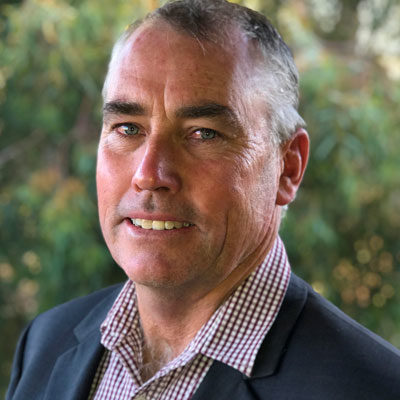
Murray Hall
Regional Winner | Sustainability category
Brookton, WA
Murray Hall is a cereals and oilseeds grower and a 2020 Growth Awards Regional Winner in the Sustainability category. Read on to learn more about Murray.
What’s the one thing you have done in your career you are most proud of?
It is the expansion of the business from what was a modest family farm into a larger farm which is successionable. That expansion is still continuing. We have been able to do this with sustainability and integrity as the criteria. The integrity part - is that we are still engaged with our past landlords or share farmers, having bought their land as part of the expansion. The sustainability side of the expansion has meant we have looked after bushland and had responsible riparian management and found the means to fund that as well. It is always difficult to buy land when it comes to cash flow. We wanted that expansion to have a balanced ecosystem and enterprise mix rather than just switch to high cash flow and high extraction enterprises to fund the expansion. It requires a slower and longer term more resilient cash flow. Being able to expand with integrity and sustainability and maintain staff was our goal.
How will you share what you learn with others in the industry?
I’ve been engaged and still am with different committees. That includes the Rabobank client council that gives us exposure to looking at education in general as well as educating teachers about science and sustainability and the things that we do. The disconnect between our city cousins and us is ongoing work.
I have an association with government departments and politicians and been invited by ministers to be on different committees, plus I am also on industry committees.
I have a diverse network of contacts and I also engage my staff who are always part of the conversation. On a personal note, we’ve had an activist come and live on the farm and left without incident – they were happy with what we are doing. It can simply be about the conversation we have on a personal level.
What do you see as your biggest opportunity in the next 12 months?
My biggest opportunity is always a new season. When I started my agricultural career, I realised you really only have 40 opportunities at growing a good crop or producing a new line of lambs. It’s fairly short in ag terms, so you make the best of what you can. We are looking at consolidating after a recent expansion and we are also restructuring the business to cater for different individuals’ aspirations in the business. Then we have the younger generation looking at following on and potentially going into the business. Those are the opportunities that a new season helps us fund and create excitement all round.
What is the biggest barrier to achieving success in the next 12 months?
Every season comes with risk so that’s probably the main barrier to success.
Our two main limiting factors in farming are the area you farm and the climate. They are barriers but they are also the tools – so you can’t be too negative about what your barriers are.
COVID-19 remains a risk despite the relative freedom we have had in WA in terms of being able to get shearers and staff. We will continue to keep working around risks and not let them be barriers.
What is the biggest challenge Australian Ag has to overcome in the next 10 years?
The remnants of COVID-19 and trade wars with China-US-Pacific are issues but social licence is the biggest challenge and ties in with climate change. In south-western WA, we are already seeing the effects that were predicted with climate change and reduced rainfall could be a game changer but I think we are adapting really well. It’s not going to go away and we need to continue our work in this space. Because of these pressures with climate, the whole population is now in a mindset of being aware of the social licence to farm, around the environment but also food safety. We need to articulate what we are doing well and rebuild that connection between the country and the city and knowledge about what we do as farmers.
There were some debates going around that we have been able to counter with science so using science is important to counter any pressures on our social licence. It’s something our ag scientists need to catch up with. I think farming is going to continue to attract attention. Food and fibre are going to be of more interest because we have gone from a situation of abundance and now sufficiency is an ongoing pressure. COVID-19 has brought that to the fore with empty supermarket shelves this year and people are now thinking about where their food comes from.